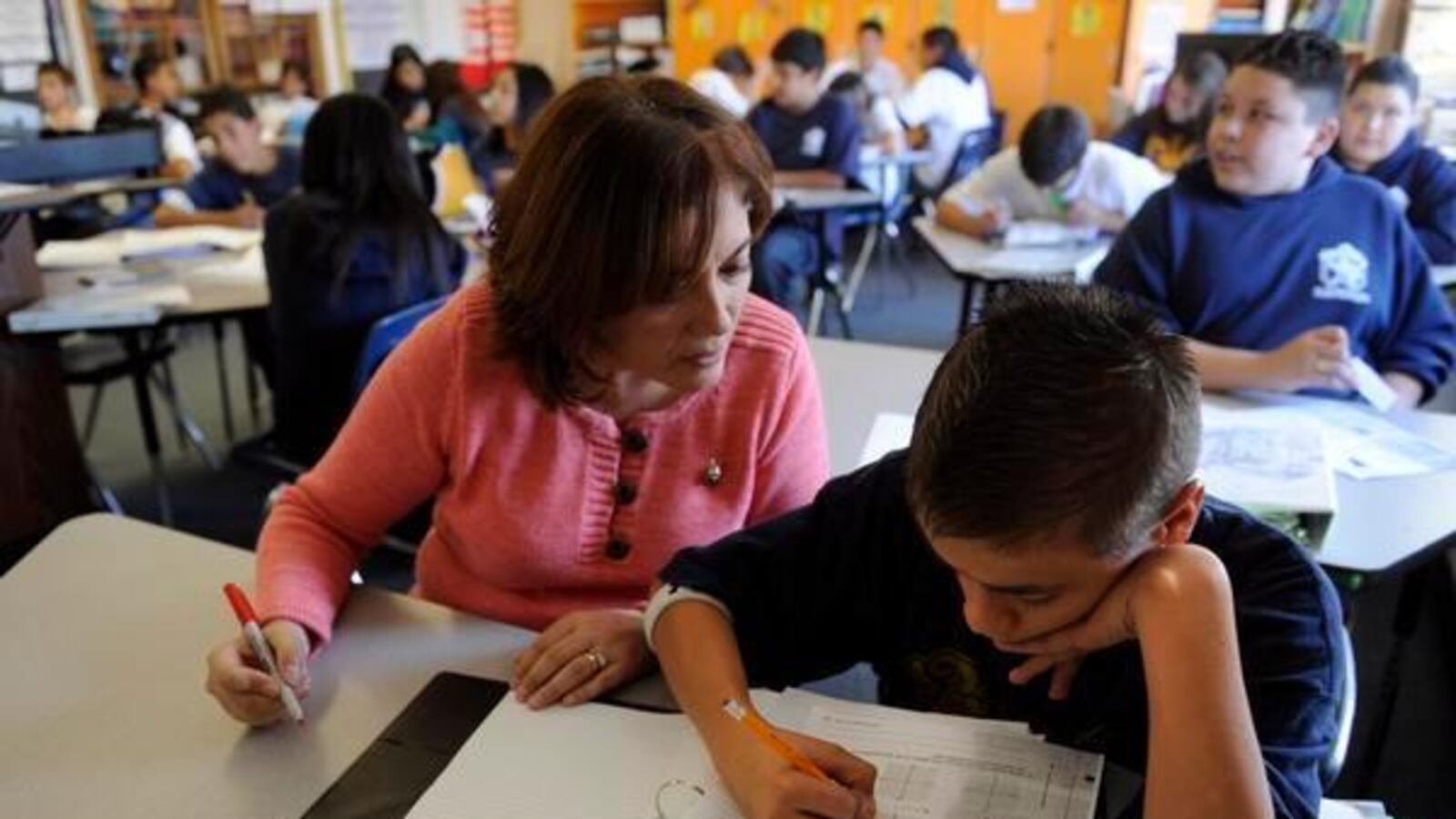It’s not every day that the state’s teachers union, Republican leaders, and education advocacy groups find themselves working toward the same goal. But this year, as Indiana puts teacher pay at the forefront of its legislative priorities, there seems to be an all-hands-on-deck approach to make it happen — and that means some unlikely allies.
During Tuesday’s ceremonial first day of the legislative session, House Speaker Brian Bosma announced in a speech to fellow lawmakers that Republican Reps. Bob Behning and Todd Huston — as well as representatives from the Indiana State Teachers Association, advocacy group Stand for Children, and the educator organization Teach Plus — were working on a plan to ensure teacher raises are part of the state’s next two-year budget.
“The most important profession for the future is those that serve in our classrooms,” Bosma said, adding that although the state has made increases over the past few years in school funding, pay for teachers has not kept pace even as administrative spending has increased.
It’s an unusual partnership because the teachers union has frequently had tension with Republicans who favor school choice and expanding the state’s charter school and private school voucher programs. The union, which staunchly advocates for traditional public schools, has also clashed over charter partnerships with districts, a model that Teach Plus and Stand for Children have supported, even though they aren’t inherently partisan.
Why now? The combination of local districts struggling to hire teachers and keep them in the classroom and a larger national conversation about teacher compensation has put raising teacher pay in the spotlight, both in Indiana and across the country. Last week, teachers in Portage, Indiana, picketed to push for larger raises as they negotiate a new contract.
“It’s been a crisis that’s been coming — we’ve seen it coming … and finally people are starting to connect the dots between compensation and retention,” said Teresa Meredith, president of ISTA, the state’s largest teachers union. “We finally had to take a step back and say, obviously fighting each other is not getting anything done.”
Meredith said state-driven policies that have led to more testing and dialed up the need for schools to compete for students naturally has resulted in increased spending on staff members who aren’t in the classroom. Now, she said, lawmakers are seeing how that’s affecting school budgets, and, in turn, making it difficult to attract and retain teachers.
The desire to figure out ways to keep teachers in the classroom also brought Teach Plus to the table, said Rachel Hathaway, program manager for the national organization’s Indiana arm. Teach Plus helps train teachers to be policy advocates.
“There is a moment happening this year that can bring folks together to really elevate the profession and support teachers to make sure they are able to stay in the classroom,” Hathaway said. Teach Plus has “a history of knowing the importance of teacher recruitment and retention and ensuring we have high-quality teachers in front of our students.”
And it’s that impact at the classroom level, Stand for Children Indiana executive director Justin Ohlemiller said, that speaks to his group’s mission. Stand is an organization that aims to help parents learn how to advocate for their children in schools, but the group has been criticized, such as during the recent Indianapolis Public Schools board election, because they do not have to disclose their spending.
“At the end of the day, data shows one of the most important single factors in children’s education is the educator at the front of the room,” Ohlemiller said.
Indiana’s plans for how to boost teacher salaries are expected to come into sharper focus over the next few weeks. But Bosma cautioned again Tuesday that there might not be much extra money to work with, casting some doubt on the state’s ability to raise pay enough to make a meaningful difference for educators across the state.
“We’re going to have more needs, more critical needs, than we have available dollars,” Bosma said.
Bosma wouldn’t offer details about how much money House Republicans would add for teacher pay, but said after funding obligations to the Department of Child Services, that state would have an optimistic $50 million per year in new revenue for other funding requests. If teacher pay were to receive just a piece of that, it would be far less than the $81 million per year or so that Senate Democrats have called for — which they figure would amount to a 5 percent raise for teachers and counselors over the next two years.
And if curbing teacher shortages is as much of a priority as the state’s majority is now pushing, state Democrat leaders say, Indiana needs to prove that come January by making it a meaningful part of the budget.
“We have the resources,” Sen. Tim Lanane, a Democrat from Anderson, said on Friday when his caucus presented its 2019 priorities. “We can make that sacrifice to make sure our teachers know we respect and appreciate them.”

